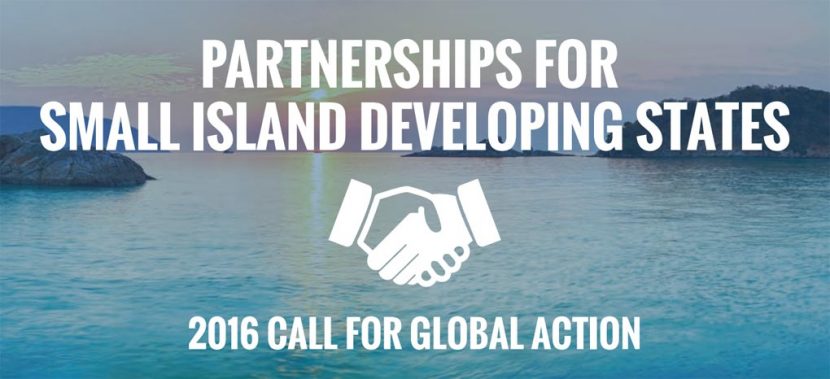The 71st session of the UNGA currently underway at the United Nations Headquarters is focusing heavily on the Sustainable Development Goals, and creating a dialogue surrounding their imminent achievement. One of the outcomes from these conversations is the importance of furthering sustainable development in small developing island states (SIDS), who are at a greater risk of experiencing natural disasters and need more assistance in developing a sustainable framework and infrastructure.
In Samoa in 2014, at the Third International Conference on Small Developing Island States, the General Assembly formally established the SIDS Partnership Framework, to “monitor and ensure the full implementation of pledges and commitments through partnerships for Small Island developing States, as well as to encourage new partnerships new, genuine and durable partnerships for the sustainable development of SIDS”. This partnership framework was established to provide resources for SIDS to continue to improve infrastructure and energy in sustainable ways that otherwise may not have been an option for them.
This year during a Partnership Dialogue at the 71st Session, new multi-stakeholder partnerships were created for the SIDS in order to advance sustainable ocean management and renewable energy. Prior to this development, there were already over 300 partnerships since the launch in Samoa in 2014, and this year’s dialogue (hosted by Italy and the Maldives) was attended by over 100 participants from these partnerships, governments, UN representatives and civil society. Several new initiatives were borne out of the meeting, including the establishment of a regional hub for climate-change related action, called the Pacific Climate Change Center, to be located in Samoa; a partnership between UNDP and Aruba to create the Center of Excellence for the Sustainable Development of SIDS; the announcement of the 4th Sustainable Ocean Summit, spearheaded by business leaders of the World Ocean Council, to take place in Rotterdam, Netherlands, later in 2016; and finally, the UN Industrial Development Organization announced plans to develop a Pacific Center for Renewable Energy and Energy Efficiency, to strengthen local capacities for implementing these sustainable changes in addition to outside help from the partnerships.
It is very important that we achieve these milestones in sustainability for developing nations as we strive towards the realization of the SDGs. Emphasizing sustainability and environmentally-friendly methods of development instead of choosing the same harmful industrial paths that developed nations have done in the past will create a more seamless transition for these small island nations into developed, sustainable powerhouses. Fully developed Western nations and BRIC states who relied on coal, oil, and other nonrenewable resources for industrialization to get to where we are today are currently experiencing difficult transitions to sustainable and renewable resources. Anything that can be done to mitigate those types of experiences for SIDS should be considered a massive achievement.


